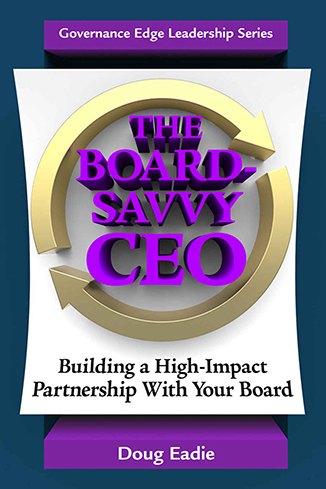 In one of the “board-savvy CEO” workshops I conducted recently, a participant – visibly upset – challenged my assertion that raising money wasn’t a mainline governing function. She informed me that donors, including foundations, made it possible for her nonprofit to invest in new and innovative programs, and that without aggressive fund-raising they couldn’t possibly address the changing needs of their clients.
In one of the “board-savvy CEO” workshops I conducted recently, a participant – visibly upset – challenged my assertion that raising money wasn’t a mainline governing function. She informed me that donors, including foundations, made it possible for her nonprofit to invest in new and innovative programs, and that without aggressive fund-raising they couldn’t possibly address the changing needs of their clients.
My response was that fund raising is a critical, indeed absolutely essential, function for local nonprofit organizations, especially in the context of declining governmental support. But, I pointed out, it’s not per se a governing function, and even if a nonprofit must call on volunteers to raise money, board members shouldn’t be the prime candidates. I went on to explain that both governing and fund raising are extremely complex and demanding activities, requiring immense skill and lots of time. If board members are to do the work of governing at a high level, it’s not feasible to heavily involve them in raising money. Why not, I asked, find other volunteers to assist in fund raising, rather than over-extending board members at the expense of effective governance?
I don’t doubt that there are CEOs out there who would disagree with me at first blush, primarily because they are desperate to diversify and enlarge their revenue streams. But in my professional opinion, your board, as a governing body, is responsible not for raising money directly, but rather for ensuring that your nonprofit is provided with adequate resources to accomplish the strategic and operational targets that your board has adopted. And that responsibility can best be carried out by your board:
- Playing a leading role in determining financial resource development needs
- Reviewing and approving resource development strategies
- Making sure that the resources required to raise money are allocated; for example, funding a financial resource development director or fund-raising consultant
- And perhaps seriously considering the establishment of a foundation whose board would be 100 percent focused on fund raising.
This is not to suggest that board members shouldn’t be enlisted to make certain high-priority fund raising contacts when they are the single most powerful resource for doing so, but this activity should be kept to a minimum. I also don’t mean to imply that board members shouldn’t contribute financially to your nonprofit. Many organizations ask board members to contribute a minimum amount as a sign of their commitment to the nonprofits they’re governing. But if you push your board to spend significant time fund raising, you’ll very likely end up with board members who do neither job – governing or fund raising – well. The dissatisfaction that this will almost certainly breed can seriously damage your relationship with the board. So don’t let yourself become the unwitting victim of an insidious foe: the erroneous assumption that fund raising is a key governing function.





